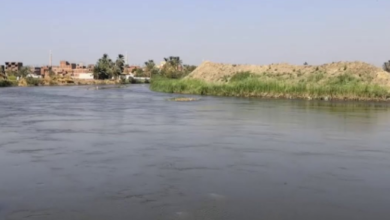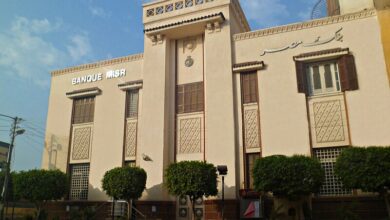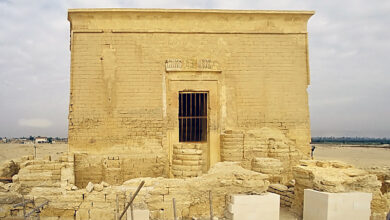Islamists are at the forefront of the electoral scene in Fayoum Governorate, southwest Cairo, where parliamentary elections are slated to begin on Monday, along with a number of other governorates during the first phase of parliamentary elections.
Islamist parties such as the Muslim Brotherhood’s (MB) Freedom and Justice Party and the Salafi Nour Party are seeking to win all 18 seats divided over two constituencies, with 6 seats devoted to single-winner candidacy and 12 seats to the list-based system.
In spite of the fact that Fayoum’s political landscape includes other political trends, mainly the liberal parties as well as remnants of the dissolved National Democratic Party (NDP), the Islamists remain the most prominent force. This is mainly due to the fact that other groups nominated fewer numbers of candidates, as they do not aim to win all seats in the governorate. They also face difficulties in appealing to voters in the governorate.
Campaign posters for Islamist parties can be found everywhere in Fayoum’s main streets.
“I’m not a member of the MB, but we went had bad experiences with the NDP,” said Ali Eissa, a 32 year-old electrical appliance shop owner in downtown Fayoum who intends to vote for the Freedom and Justice Party.
“My neighborhood’s problems haven’t changed so why not give a chance to the Freedom and Justice Party, since it is an organized group that clearly has a lot of energy to serve the citizens?”
Eissa speaks for many residents. Fayoum city was originally a focus of activity for Islamist groups, and in particular the MB, which has worked in the governorate for the past ten years. This, according to residents, created roots and extensive relationships with the ordinary people of Fayoum.
"We have all the attributes that allow us to run for all of the governorate’s seats; the MB’s activity is well known within the city and there is nothing wrong about that,” said Ahmed Abdel Rahman, Freedom and Justice Party candidate in Fayoum’s first constituency.
“There are other political parties in Fayoum; it’s not only limited to the Islamists,” continued Abdel Rahman. “In general, diversity is in voters’ best interest, but the determining factor lies in who is able to bring in the votes."
According to the spokesman of the Salafi Nour Party in Fayoum, Mohamed Hussein, many voters, and not only Salafi supporters, may vote for candidates of his party.
“The existence of multiple Islamist faces in Fayoum is not annoying to voters, as electoral success depends not only on affiliations,” said Hussein.
“Platforms are also a big factor."
Another interesting phenomenon is the fact that many candidates running for seats in the individual system are Salafis, which means they are competing against each other.
Non-Islamists are having a hard time keeping up. Although liberal parties such as the Wafd Party, the Justice Party and the Free Egyptians Party are running for a number of individual and party based seats, many of their candidates remain unfamiliar to voters.
"We do everything in our power to communicate with people and our party appeals to those who reject an Islamist majority," said Mostafa Meizar, a Justice Party candidate in Fayoum’s second constituency.
“One of the most prominent problems we face is the state’s failure to monitor Islamists’ electoral activities. They use the mosques as a means to promote themselves despite the fact that the law prohibits this.”
Meizar believes the use of religious propaganda may help win votes, especially from lower classes.
Remnants of the NDP also form part of Fayoum’s electoral landscape, as three party-lists include former NDP candidates. These include the Conservative Party, the Freedom Party, and the Reform and Development Party. A number of candidates for individual seats have previously won in the 2010 elections as members of the dissolved party.
Meizar and Hussein agreed that NDP remnants have a good chance at winning votes due to tribal and familial connections to many small villages within the governorate.
Meanwhile, revolutionary forces have been noticeably missing from the electoral scene in Fayoum. The Revolution Youth Coalition only has two candidates running for individual seats, while the April 6 Youth Movement and other revolutionary movements are absent, thus giving the voter little choice but to vote for the traditional powers represented mainly in the Freedom and Justice Party or former NDP members.




